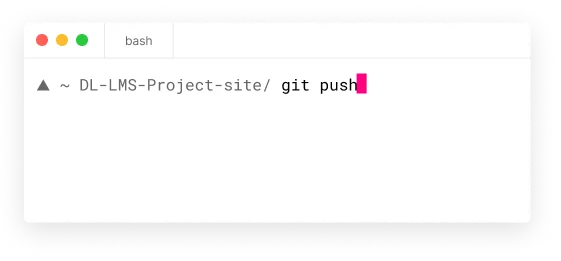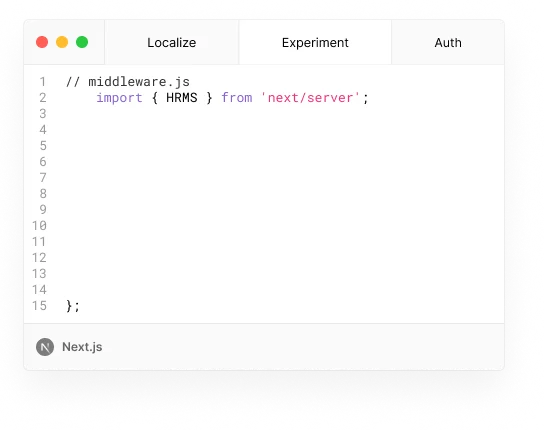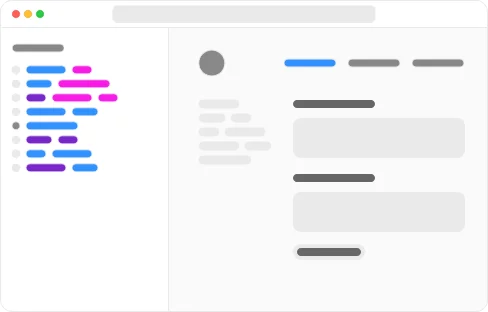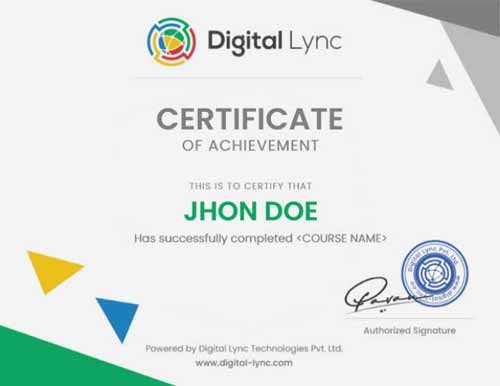Learn from Curated Curriculums developed by Industry Experts
Topics:
1. What is an Application?
Overview of applications and their significance.
2. Types of Applications
Classification and examples of various application types.
3. Fundamentals of Web Applications
Basic concepts and components of web applications.
4. Web Application Architecture
Structure and design patterns in web application architecture.
5. Web Technologies used in Projects
Key technologies and frameworks used in web application development.
Topics
1. Introduction to Software Development Life Cycle
The phases, importance, and overview of SDLC.
2. Application Lifecycle Management - ALM
Tools, processes, and overview of ALM.
3. SDLC Methodologies
Examination of different methodologies used in software development.
4. DevOps Process
Understanding the principles, practices, and benefits of DevOps.
Topics
1. Introduction To Agile & Scrum
Fundamental overview of Agile methodologies and the Scrum framework.
2. The Principles of Agile Methodology
Core principles of Agile focusing on iterative development and customer collaboration.
3. Scrum Framework: Roles, Artifacts, and Events
Key components of Scrum, including its roles, artifacts, and structured events.
4. Implementing Agile with Scrum
Strategies for applying Agile and Scrum practices in software development projects.
5. Agile Project Management Best Practices
Essential practices for leading Agile projects, emphasizing communication and continuous improvement.
1. Introduction to Business Analysis
Definition and Role of Business Analysts
Business Analysis Frameworks and Certifications
2. Understanding Requirements
Types of Requirements
Elicitation Techniques and Documenting Requirements
Prioritizing and Managing Requirements Changes
3. Business Analysis Tools and Techniques
Overview of tools used in business analysis for various purposes, including elicitation, documentation, and validation.
1. Lifecycle Management
Overview of the Business Analysis Life Cycle
Comparison with Project Management Life Cycle
Planning, Monitoring, and Evaluating Solutions
2. Working with Stakeholders
Stakeholder Identification and Analysis
Communication Planning and Effective Meeting Facilitation
Building Relationships and Negotiating Conflicts
1. Conducting Discovery
Assessing the Business Environment and Needs
Identifying Problems, Opportunities, and Conducting Feasibility Studies
Developing Business Cases
2. Process Mapping and Improvement
Business Process Modeling (BPMN) and Mapping Techniques
Identifying Process Inputs, Outputs, and Actors
Analyzing and Improving Business Processes with Metrics
1. Designing Solutions
Principles of Solution Design and Design Thinking
User Interface Design and Prototyping Techniques
Usability Testing and Iterative Design for Solutions
2. Requirements Validation
Techniques for Validating Requirements
Tracing Requirements and Ensuring Alignment with Business Needs
1. Software Testing
Fundamentals of Testing in Business Analysis
Planning, Design, Execution, and Automation of Tests
Performance Testing and Managing Defects
2. Release Management and Post-Implementation
Planning and Managing Releases
Deployment Execution and Post-Go-Live Support
Ensuring Business Continuity and Fostering Continuous Improvement
1. Introduction to SQL for data analysis
2. Basic SQL queries for data retrieval
3. Advanced data filtering, sorting, and aggregation in SQL
4. Complex queries with joins and subqueries
5. DML and DDL operations in SQL for data analysts
1. Data cleaning and preparation strategies
2. Transforming and manipulating data with SQL
3. Introduction to Power BI for data analysis
4. Data transformation and cleansing with Power Query
5. Managing complex data structures for analysis
1. Fundamentals of data visualization
2. Creating and customizing visualizations in Power BI
3. Designing interactive dashboards
4. Dashboard design best practices
5. Publishing and sharing insights with Power BI
1. Advanced DAX for complex calculations
2. Time series analysis in Power BI
3. Implementing data security in Power BI projects
4. Automating data refresh and management
5. Integration of Power BI with other services
1. Effective data storytelling with Power BI
2. Collaboration features in Power BI
3. Managing access and report sharing
4. Deploying Power BI Apps for organizations
5. Best practices for BI solutions maintenance
1. Fundamentals and importance of software testing
2. Types of testing: unit, integration, system, acceptance
3. Role of testing in the SDLC
4. Crafting effective test cases and plans
5. Introduction to automated testing
1. Organizing testing phases and activities
2. Managing the defect lifecycle
3. Effective test case design strategies
4. Test prioritization and execution
5. Overview of test management tools
1. Basics of test automation and tool selection
2. Automating test cases for efficiency
3. Popular test automation frameworks
4. Maintaining automated test scripts
5. CI/CD integration with automated tests
1. Introduction to performance testing concepts
2. Load and stress testing techniques
3. Basics of security testing for applications
4. Common security vulnerabilities and tests
5. Tools for performance and security testing
1. Implementing TDD and BDD in projects
2. Advanced automation: data-driven and keyword-driven testing
3. Strategies for mobile and cross-browser testing
4. Exploring non-functional testing: usability, accessibility
5. Upcoming trends in software testing
Topics:
1. Cloud Computing Basics
Understanding cloud computing: Definitions, service models (IaaS, PaaS, SaaS), and deployment models (public, private, hybrid, multicloud).
2. Cloud Service Providers Overview
Introduction to major cloud platforms (e.g., AWS, Azure, Google Cloud), focusing on their core services relevant to developers.
3. Cloud-based Development Environments
Setting up and utilizing cloud-based IDEs and development tools to streamline development workflows.
4. Deploying Applications on the Cloud
Basic concepts of application deployment on the cloud, including containerization basics with Docker and initial orchestration concepts.
Topics:
1. Understanding DevOps
The philosophy, practices, and benefits of DevOps in modern software development, emphasizing collaboration, automation, and integration.
2. Version Control with Git
Deep dive into using Git for source code management, including best practices for branches, commits, merges, and pull requests.
3. Continuous Integration/Continuous Deployment (CI/CD)
Introduction to CI/CD pipelines, overview of tools ( GitHub Actions), and setting up basic pipelines for automated testing and deployment.
4. Monitoring and Feedback
Basics of application monitoring, log management, and utilizing feedback for continuous improvement.
Topics:
1. Containers and Docker
Introduction to containers, Docker fundamentals, creating Docker images, and container management basics.
2. Managing Application Infrastructure
Basic strategies for managing infrastructure as part of the application lifecycle, including introduction to infrastructure as code (IaC) principles.
Topics:
1. Scalable Application Design
Principles of designing scalable applications that can grow with user demand, focusing on microservices architecture and stateless application design.
2. Cloud-native Services for Developers
Leveraging cloud-native services (e.g., AWS Lambda, Azure Functions, Google Cloud Run) for building and deploying applications.
3. Databases in the Cloud
Overview of cloud database services (SQL and NoSQL) and integrating them into web applications.
4. Security Basics in Cloud and DevOps
Understanding security best practices in cloud environments and throughout the DevOps pipeline.
Topics:
1. Agile and Scrum Methodologies
Incorporating Agile and Scrum practices into team collaboration for efficient project management.
2. Code Review and Collaboration Tools
Utilizing code review processes and collaboration tools GitHub, to enhance code quality and team productivity.
3. Automation in Development
Exploring automation beyond CI/CD, including automated testing frameworks, database migrations, and environment setup.
4. DevOps Culture and Best Practices
Cultivating a DevOps culture within teams, embracing continuous learning, and adopting industry best practices for sustainable development.
Work on our Real-time Projects , Task Based

An LMS project develops a digital platform for online learning, featuring course creation, content management, user tracking, assessments, and reporting, aimed at enhancing educational interaction.

The HRMS project develops a digital system for managing HR functions like employee data, payroll, recruitment, and performance, aiming to streamline processes and enhance organizational efficiency.

A CRM project develops a system to manage company interactions with customers, incorporating tools for contact, sales, productivity, and support to enhance service, drive sales, and boost retention.
Internships and Course certifications for Enhanced Skill Validation.


Our focus on job-readiness Github Profile, Linkedin Profile, Resume Prep and Help Apply
Guidance on creating and maintaining a professional GitHub profile to showcase technical projects and coding prowess.
Assistance in crafting a compelling LinkedIn profile for networking and visibility among recruiters.
Expert advice on resume writing to effectively highlight skills, experience, and achievements.
Support in identifying suitable job opportunities and navigating the application process.

25th Sept 2023
Monday
8 AM (IST)
1hr-1:30hr / Per Session
27th Sept 2023
Wednesday
10 AM (IST)
1hr-1:30hr / Per Session
29th Sept 2023
Friday
12 PM (IST)
1hr-1:30hr / Per Session
50,000+ uplifted through our hybrid classroom & online training,
enriched by real-time projects and job support.
Come and chat with us about your goals over a cup of coffee

2nd Floor, Hitech City Rd, Above Domino's, opp. Cyber Towers, Jai hind Enclave, Hyderabad, Telangana,

3rd Floor, Site No 1&2 Saroj Square, Whitefield Main Road, Munnekollal Villag Post, Marathahalli, Bengaluru, Karnataka

Madhav Nager Main Road, Opp SBI Bank, Opp SP Office, Kakinada,
Andhra Pradesh